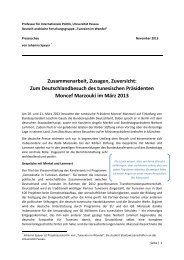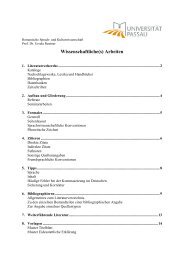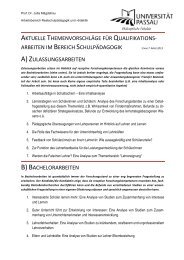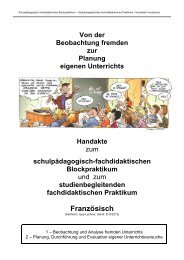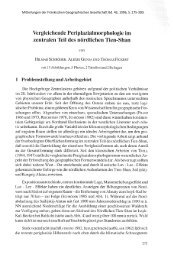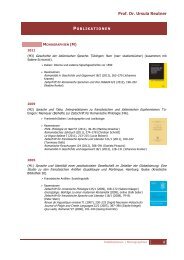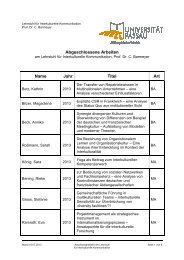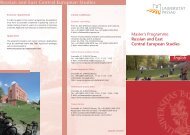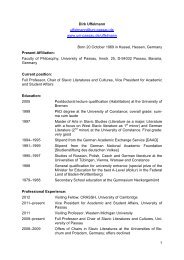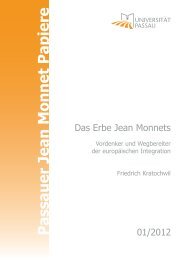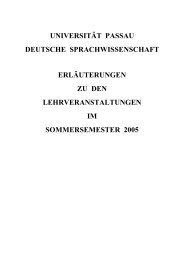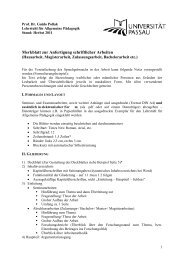The attempt to adopt a mixed-member proportional election system ...
The attempt to adopt a mixed-member proportional election system ...
The attempt to adopt a mixed-member proportional election system ...
You also want an ePaper? Increase the reach of your titles
YUMPU automatically turns print PDFs into web optimized ePapers that Google loves.
31<br />
different experiences” (CDC 38:87). Since their proposal was little different from the<br />
1997 <strong>election</strong> <strong>system</strong>, it also had little effect on the knowledge and understanding of<br />
the people, and neither on the elec<strong>to</strong>ral administration, both of which was important,<br />
because <strong>election</strong>s were <strong>to</strong> be held quite soon (after the constitution would have been<br />
passed in a referendum) (ibid.:88). Pairote Promsan later in the meeting added that<br />
introducing something new, such as the 200 <strong>to</strong> 200 or the 250 <strong>to</strong> 250 formulas, was<br />
difficult <strong>to</strong> do and hard <strong>to</strong> explain. Moreover, this (MMP <strong>system</strong>) was really very new.<br />
“<strong>The</strong> country is not a <strong>to</strong>ol for us <strong>to</strong> experiment with new things, while the time is so<br />
limited” (ibid: 119).<br />
This remark came after Woothisarn’s counterpart, Krirkkiat Phipatseritham, had<br />
delivered a spirited defense of the MMP <strong>system</strong>. At the beginning, he pointed out that<br />
many elements of the MMP were similar <strong>to</strong> what Chermsak had said. Regarding the<br />
past two <strong>election</strong>s (2001 and 2005),<br />
the <strong>election</strong> <strong>system</strong> that we have used created governments with absolute<br />
majorities in the House two times in a row. That we have had governments<br />
with absolute majorities subjected our political <strong>system</strong> <strong>to</strong> a dicta<strong>to</strong>rial<br />
use of power. (CDC 38:88f.)<br />
One might wonder whether Krirkkiat did not actually want <strong>to</strong> say that one single party,<br />
Thaksin’s Thai Rak Thai, had won absolute majorities “two times in a row”<br />
(though in 2001, it did not, but needed <strong>to</strong> form a coalition government). Besides, governments<br />
in a parliamentary <strong>system</strong> are normally thought <strong>to</strong> need absolute majorities<br />
in the House for being stable. Such absolute majorities are not usually equated with a<br />
“dicta<strong>to</strong>rial use of power” (see also his quote on the next page) Krirkkiat added,<br />
I think that the <strong>election</strong> <strong>system</strong> of 1997 was the reason that a government<br />
with dicta<strong>to</strong>rial powers occurred. If we use the <strong>proportional</strong> <strong>system</strong>, we<br />
will get a government with a majority, but it would not dare using its<br />
power <strong>to</strong> deviate [from the right path]. (CDC 38:90)<br />
Given these statements, it is not surprising that Krirkkiat could not agree with Woothisarn’s<br />
proposal <strong>to</strong> re<strong>adopt</strong> the 1997 <strong>election</strong> <strong>system</strong>, though with small changes. He<br />
anticipated that this <strong>system</strong> would again lead <strong>to</strong> the “parliamentary dicta<strong>to</strong>rship” that<br />
he and his group had been trying <strong>to</strong> exorcize from the Thai polity. “If we want <strong>to</strong> see<br />
political change in our country in a way that is better and constructive …, then, I<br />
think, the <strong>election</strong> <strong>system</strong> is an essential element that must be changed [<strong>to</strong>wards



